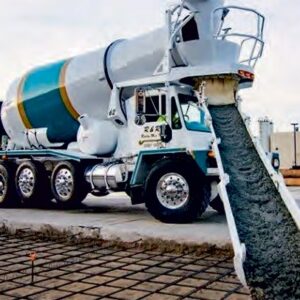Community landscape management in commercial properties is evolving rapidly, and technology is playing a pivotal role in shaping how properties are maintained, monitored, and optimized. Effective community landscape management goes beyond simply keeping lawns and plants looking neat—it involves a strategic approach that balances aesthetics, sustainability, operational efficiency, and long-term cost savings. From corporate campuses and office parks to HOAs and commercial complexes, managers are tasked with coordinating irrigation, pruning, pest control, turf care, and seasonal planting while staying within budget and regulatory requirements. One of the most significant innovations transforming this process is smart irrigation. By integrating smart irrigation systems into comprehensive landscape management strategies, commercial properties can achieve healthier landscapes, conserve water, and streamline maintenance operations. What this really means is that property managers can leverage real-time data and automated systems to make precise decisions, ensuring every plant and turf area receives the right amount of care without wasting resources. In the context of community landscape management, smart irrigation not only enhances the visual appeal and resilience of communal spaces but also supports sustainable practices, reduces operational costs, and improves the overall efficiency of maintenance teams. For HOAs, commercial complexes, and office parks, adopting smart irrigation is no longer just a convenience it’s becoming a core element of modern landscape management strategies that ensures the property thrives year-round while meeting environmental and economic goals.
What Is Smart Irrigation?
Smart irrigation refers to advanced watering systems that use technology to deliver the precise amount of water plants and turf need, exactly when they need it. Unlike traditional irrigation systems, smart systems rely on sensors, weather data, and automated controllers to adjust watering schedules in real-time. This approach ensures optimal hydration while preventing overwatering, which can lead to soil erosion, nutrient leaching, and increased maintenance costs.
Smart irrigation systems are particularly beneficial in commercial landscapes, where large areas of turf, shrubs, and ornamental plants require consistent care. By automating irrigation based on environmental conditions, these systems reduce human error, save labor, and maintain the aesthetic appeal of the property.
Benefits of Smart Irrigation for Community Landscape Management
1. Water Efficiency and Cost Savings
One of the most significant advantages of smart irrigation is its ability to reduce water waste. Traditional irrigation often relies on fixed schedules, which may not align with actual weather or soil conditions. Smart systems, however, use sensors to monitor soil moisture and local weather patterns, adjusting watering schedules accordingly. This not only conserves water but also lowers utility bills, making it a sustainable choice for commercial properties.
For properties that operate under strict water regulations or drought-prone areas, smart irrigation provides compliance support while maintaining healthy landscapes.
2. Improved Landscape Health
Consistent and accurate watering leads to healthier turf and plant growth. Overwatering or underwatering can weaken roots, increase susceptibility to pests, and reduce the overall visual appeal of a commercial property. Smart irrigation ensures that every area receives the right amount of water, promoting deep root growth, vibrant greenery, and long-term plant resilience. This is particularly critical in community landscape management, where aesthetics directly influence tenant satisfaction and property value.
3. Labor and Time Savings
Managing large commercial landscapes often requires a significant workforce for irrigation and maintenance. Smart irrigation systems reduce the need for manual adjustments and monitoring, freeing up staff to focus on other essential tasks, such as pruning, fertilization, or seasonal plantings. Automating irrigation schedules also reduces errors and ensures consistent care even during staff shortages or high-demand periods.
4. Data-Driven Decision Making
Smart irrigation systems generate valuable data on water usage, soil conditions, and irrigation efficiency. Property managers can use this information to make informed decisions about landscape care, identify problem areas, and plan for future improvements. Integrating data-driven strategies into community landscape management helps optimize resources, enhance sustainability, and demonstrate responsible property stewardship to stakeholders.
Implementing Smart Irrigation in Commercial Landscapes
1. Assessing Landscape Needs
Before installing a smart irrigation system, it’s crucial to assess the property’s specific needs. This includes evaluating plant types, soil conditions, slope, sun exposure, and existing irrigation infrastructure. Proper planning ensures the system delivers water effectively and efficiently across all areas of the landscape.
2. Selecting the Right Technology
Smart irrigation technology comes in various forms, including soil moisture sensors, weather-based controllers, and remote monitoring systems. Choosing the right combination depends on the size and complexity of the landscape, budget considerations, and the desired level of automation. Working with experienced commercial landscaping providers can ensure seamless integration with existing landscape management practices.
3. Monitoring and Maintenance
Even with advanced automation, smart irrigation systems require routine monitoring and maintenance to function optimally. Regular checks ensure sensors are accurate, controllers are up-to-date, and irrigation zones are performing as intended. Incorporating this into community landscape management protocols guarantees long-term efficiency and reliability.
Integrating smart irrigation into community landscape management offers commercial properties a strategic advantage. It enhances landscape health, reduces water waste, saves labor, and provides valuable data for informed decision-making. For property managers and commercial complexes looking to optimize their landscape operations, smart irrigation represents a forward-thinking solution that aligns sustainability with practical management. By embracing these technologies, communities can maintain visually appealing and environmentally responsible landscapes that stand out and thrive year-round.




